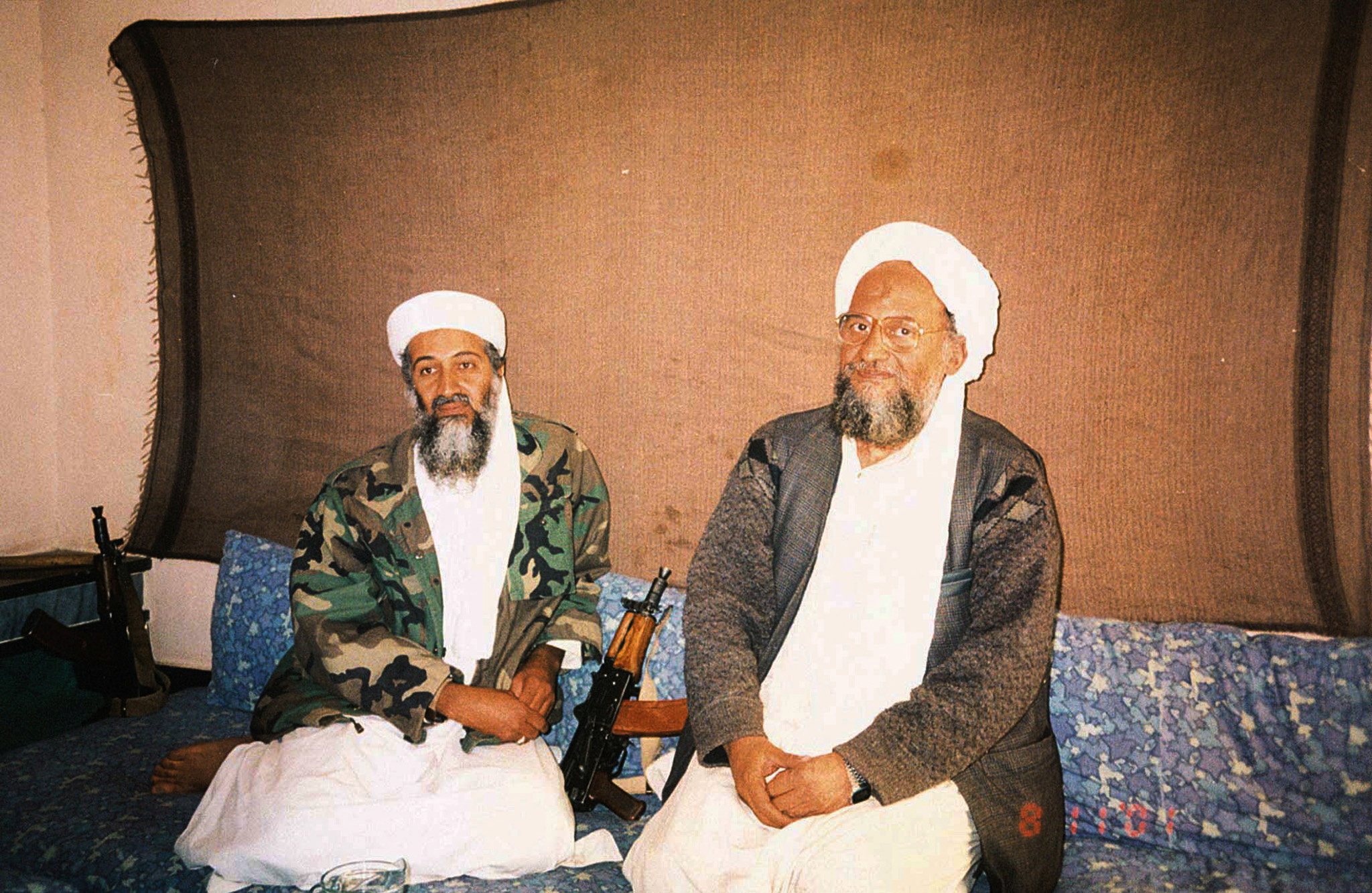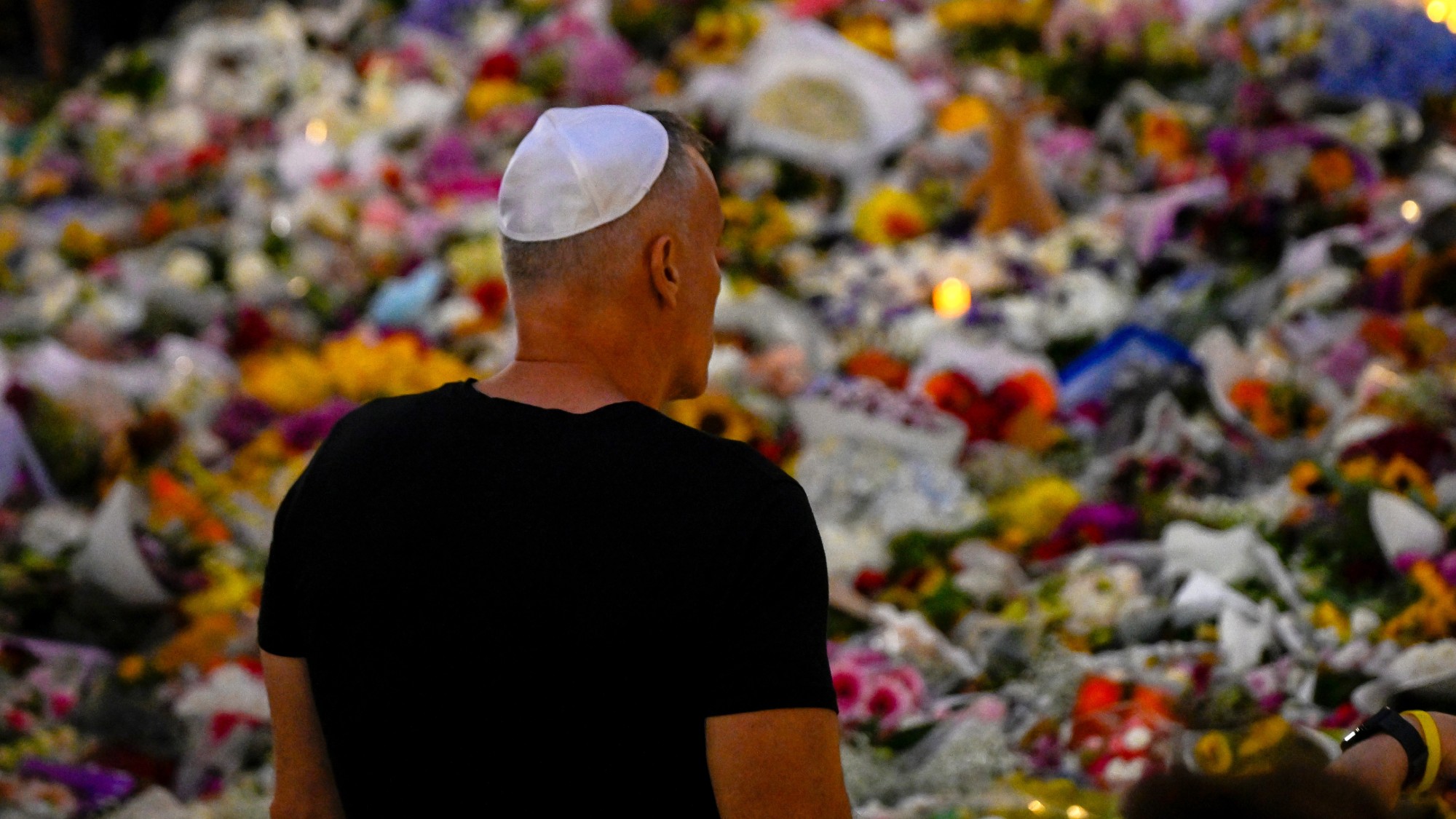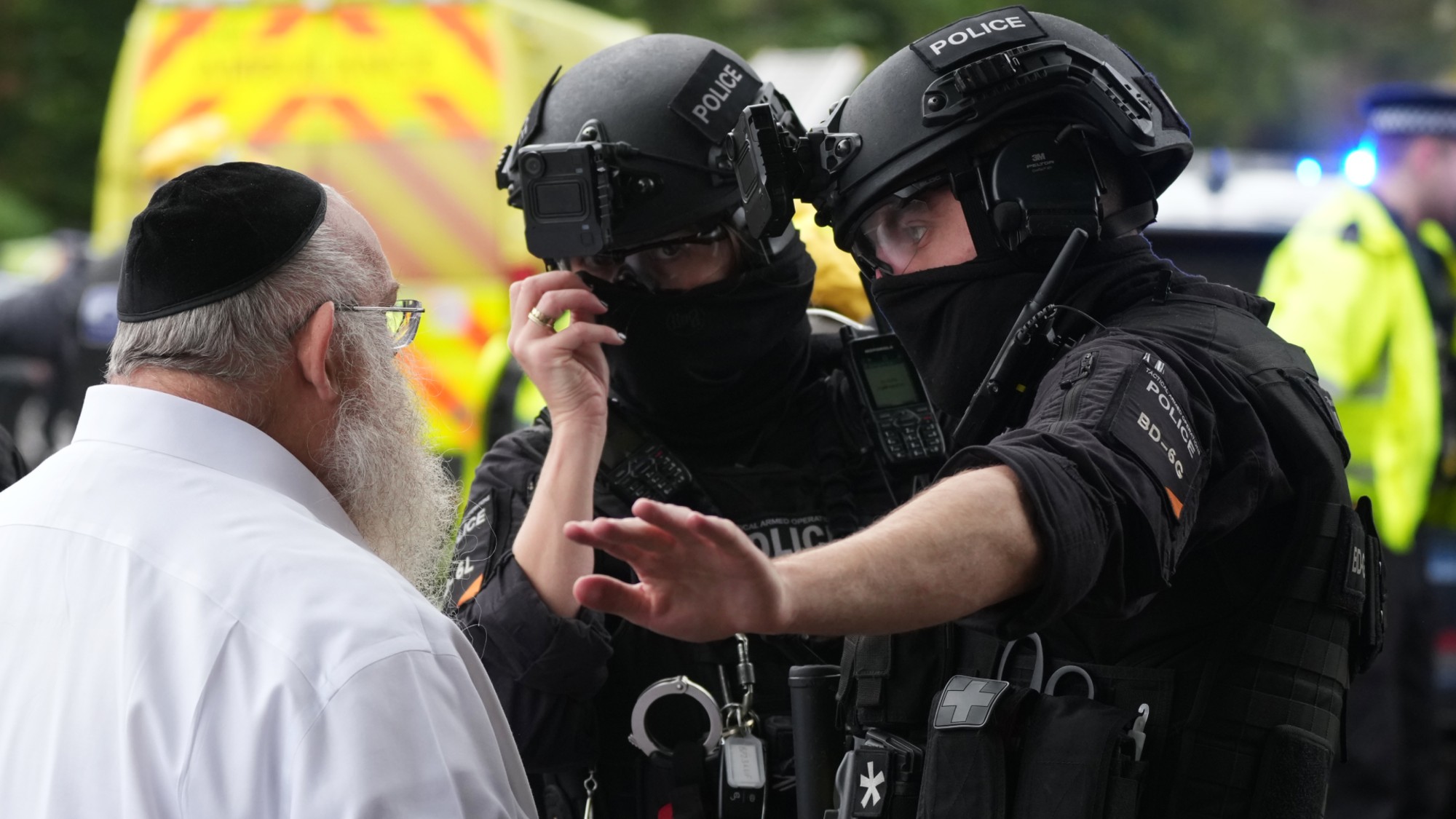The terrorism 'mastermind'
Before he was killed in a U.S. drone strike, Ayman al-Zawahiri was one of the most wanted men in the world


A free daily email with the biggest news stories of the day – and the best features from TheWeek.com
You are now subscribed
Your newsletter sign-up was successful
Ayman al-Zawahiri, the leader of Al Qaeda and one of the FBI's Most Wanted, was killed over the weekend in a U.S. drone strike. President Biden called him the "mastermind" of several attacks that killed Americans, and said with his death, "justice has been delivered." Here's everything you need to know:
Who was Ayman al-Zawahiri?
Born in Egypt on June 19, 1951, al-Zawahiri grew up in a conservative family, with his great uncle serving as grand imam of the Al Azhar university in Cairo. He was inspired by the writings of Sayyid Qutb, an Egyptian Islamist who considered moderate Muslims "infidels" and wanted to see the secular government replaced with an Islamic one. At 15, al-Zawahari and some of his peers started an underground militant organization, which ultimately merged with other cells to become the Egyptian Islamic Jihad.
He studied at Cairo University and earned his master's degree in surgery, and in 1980 went to Afghanistan to treat Islamic fighters; it was there he first met Osama bin Laden. One year later, he was among the hundreds of militants arrested in the wake of Egyptian President Anwar Sadat's assassination. Al-Zawahiri spent three years in prison, and upon his release returned to Afghanistan, where he connected again with bin Laden. At the time, bin Laden was funding the Mujahideen in their fight against the Soviets; he would go on to form Al Qaeda in 1988.
The Week
Escape your echo chamber. Get the facts behind the news, plus analysis from multiple perspectives.

Sign up for The Week's Free Newsletters
From our morning news briefing to a weekly Good News Newsletter, get the best of The Week delivered directly to your inbox.
From our morning news briefing to a weekly Good News Newsletter, get the best of The Week delivered directly to your inbox.
When did al-Zawahiri join Al Qaeda?
The Egyptian Islamic Jihad merged with Al Qaeda in 1998, and al-Zawahiri became bin Laden's deputy. That year, al-Zawahiri wrote that "to kill Americans and their allies — civilian and military — is an individual duty for every Muslim who can do it in every country in which it is possible to do it." He was known for plotting suicide bombings, including one in 1995 against the Egyptian Embassy in Islamabad, Pakistan, and promoted this approach with Al Qaeda. Al-Zawahiri did not have the charisma of bin Laden, counterterrorism experts say, but was the brains behind Al Qaeda.
When announcing al-Zawahiri's death on Monday, President Biden listed the different attacks he helped plan as Al Qaeda's No. 2: the 1998 bombings of U.S. embassies in Kenya and Tanzania, the 2000 bombing of the USS Cole in Yemen, and the Sept. 11, 2001, attacks. Biden referred to al-Zawahiri as "deeply involved" in the planning of Sept. 11 and the "mastermind" of the USS Cole attack. During this time period, both al-Zawahiri and bin Laden were living in Afghanistan, where the Taliban gave Al Qaeda refuge.
What did al-Zawahiri do after Sept. 11?
In late 2001, the United States launched its invasion of Afghanistan, aiming to wipe out Al Qaeda. The Taliban government was toppled, and bin Laden and al-Zawahiri both escaped the country and went into hiding in Pakistan's tribal region. While he managed to make it out of Afghanistan, al-Zawahiri's wife and at least two of his children died in a U.S. airstrike on their compound in Kandahar. For years, al-Zawahiri's exact whereabouts were unknown, and there was a $25 million bounty on his head.
While on the run, al-Zawahiri led Al Qaeda's expansion in Iraq, Yemen, Somalia, North Africa, and Saudi Arabia, and every so often, he would release a video or audiotape proving he was still alive. In 2011, after bin Laden was killed during a U.S. raid in Pakistan, al-Zawahiri became Al Qaeda's leader.
A free daily email with the biggest news stories of the day – and the best features from TheWeek.com
What do we know about the strike that killed al-Zawahiri?
Biden said on Monday that intelligence tracked al-Zawahiri down earlier this year, and he recently moved to a safe house in Kabul to be with his family. U.S. officials told The Guardian that al-Zawahiri was spotted several times on a balcony, and Biden was shown a model of the house. Biden said the drone strike was "carefully planned" to minimize the risk to civilians, and when he was told last week that "conditions were optimal," he gave his final approval. The strike was carried out Sunday morning, with two Hellfire missiles hitting al-Zawahiri; the U.S. says none of al-Zawahiri's family members were hurt, nor were there any civilian casualties.
A U.S. official told The Guardian that after the strike, members of the Taliban quickly moved al-Zawahiri's wife, daughter, and grandchildren to another location, and tried to clear away all evidence that he had been at the property. "We have identified a concerted effort to restrict access to the safe house in the surrounding area for hours after the strike," the official said. "The safe house used by al-Zawahiri is now empty."
What does this strike mean for the Taliban?
After retaking Afghanistan last year, the Taliban claimed it would not let Al Qaeda and other terror groups have a safe haven in the country and use it as a launching pad for attacks. With al-Zawahiri killed in Kabul, this raises questions about whether or not they are truly committed, with the U.S. saying the Taliban has violated its peace agreement. The Taliban in turn has condemned the strike and is accusing the U.S. of violating the conditions.
The U.S. withdrew from Afghanistan last August, and Biden said he "made a promise to the American people that we would continue to conduct effective counterterrorism operations in Afghanistan and beyond. We've done just that." The drone strike shows that even if there aren't any American troops in Afghanistan, the U.S. is still able to "spot threats and also disrupt them in time," Asfandyar Mir, a senior expert at the United States Institute of Peace, told The New York Times. "However, the worrying news is that Al Qaeda continues to fester and grow under the tutelage of the Taliban."
How will al-Zawahiri's death affect the future of Al Qaeda?
The Associated Press writes that this strike is "likely to lead to greater disarray within the organization than did bin Laden's death in 2011, since it is far less clear who his successor would be." There aren't as many members of the group as there were 20 years ago, due to strikes and people leaving to join other terror organizations. One likely successor, Abdullah Ahmed Abdullah, who went by the name Abu Muhammad al-Masri, was killed by Israeli operatives while in Tehran two years ago. Another candidate, al-Zawahiri's deputy, Abu al-Khayr al-Masri, was killed in a U.S. drone strike in Syria in 2017. Counterterrorism analyst Colin Clarke of The Soufan Group told the Times that al-Zawahiri's "heir will face the challenge of attracting new recruits and growing the organization. If the franchises or affiliates can't agree on a leader, then there could be fissures or splits."
Catherine Garcia has worked as a senior writer at The Week since 2014. Her writing and reporting have appeared in Entertainment Weekly, The New York Times, Wirecutter, NBC News and "The Book of Jezebel," among others. She's a graduate of the University of Redlands and the Columbia University Graduate School of Journalism.
-
 6 exquisite homes with vast acreage
6 exquisite homes with vast acreageFeature Featuring an off-the-grid contemporary home in New Mexico and lakefront farmhouse in Massachusetts
-
 Film reviews: ‘Wuthering Heights,’ ‘Good Luck, Have Fun, Don’t Die,’ and ‘Sirat’
Film reviews: ‘Wuthering Heights,’ ‘Good Luck, Have Fun, Don’t Die,’ and ‘Sirat’Feature An inconvenient love torments a would-be couple, a gonzo time traveler seeks to save humanity from AI, and a father’s desperate search goes deeply sideways
-
 Political cartoons for February 16
Political cartoons for February 16Cartoons Monday’s political cartoons include President's Day, a valentine from the Epstein files, and more
-
 How the ‘British FBI’ will work
How the ‘British FBI’ will workThe Explainer New National Police Service to focus on fighting terrorism, fraud and organised crime, freeing up local forces to tackle everyday offences
-
 How the Bondi massacre unfolded
How the Bondi massacre unfoldedIn Depth Deadly terrorist attack during Hanukkah celebration in Sydney prompts review of Australia’s gun control laws and reckoning over global rise in antisemitism
-
 Who is fuelling the flames of antisemitism in Australia?
Who is fuelling the flames of antisemitism in Australia?Today’s Big Question Deadly Bondi Beach attack the result of ‘permissive environment’ where warning signs were ‘too often left unchecked’
-
 Ten years after Bataclan: how has France changed?
Ten years after Bataclan: how has France changed?Today's Big Question ‘Act of war’ by Islamist terrorists was a ‘shockingly direct challenge’ to Western morality
-
 Arsonist who attacked Shapiro gets 25-50 years
Arsonist who attacked Shapiro gets 25-50 yearsSpeed Read Cody Balmer broke into the Pennsylvania governor’s mansion and tried to burn it down
-
 Manchester synagogue attack: what do we know?
Manchester synagogue attack: what do we know?Today’s Big Question Two dead after car and stabbing attack on holiest day in Jewish year
-
 The Miami Showband massacre, 50 years on
The Miami Showband massacre, 50 years onThe Explainer Unanswered questions remain over Troubles terror attack that killed three members of one of Ireland's most popular music acts
-
 The failed bombings of 21/7
The failed bombings of 21/7The Explainer The unsuccessful attacks 'unnerved' London and led to a tragic mistake
